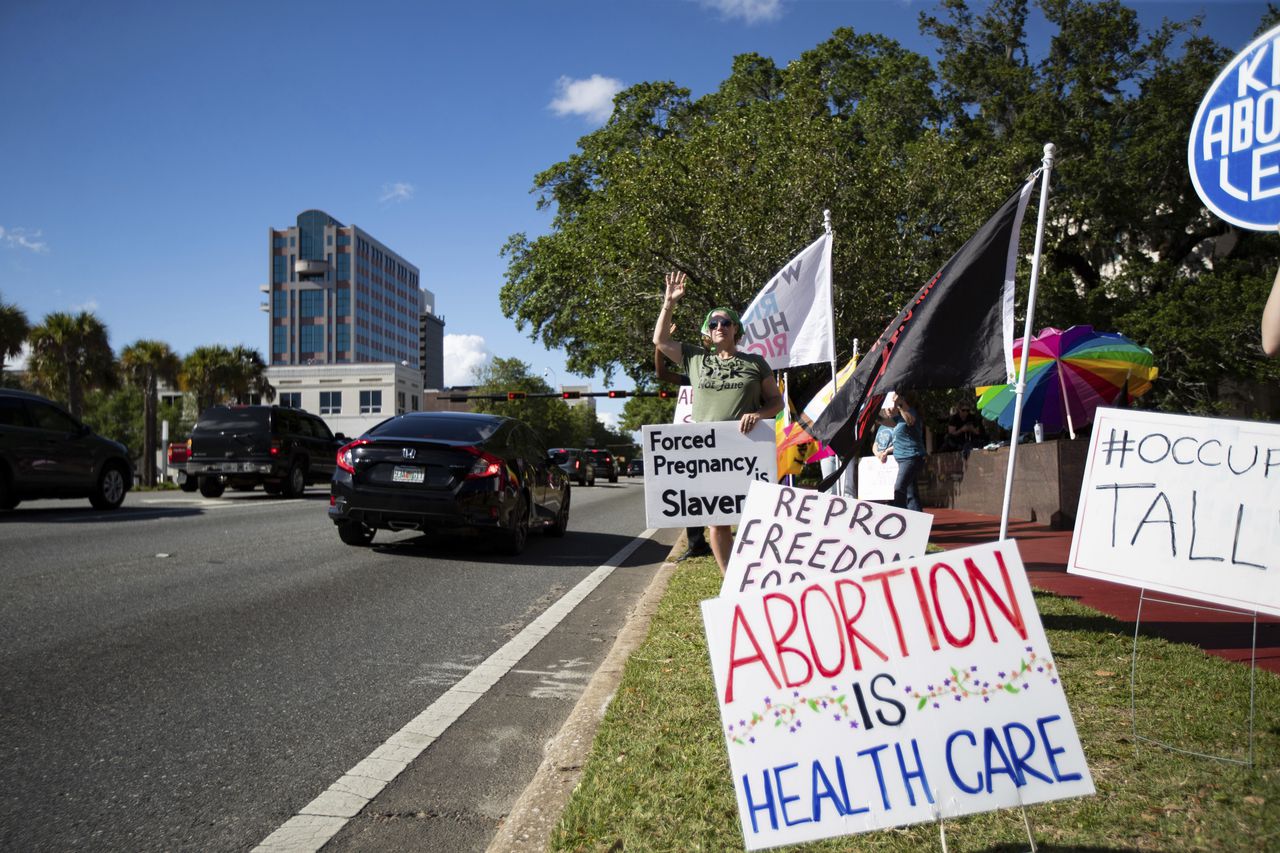Florida’s 6-week abortion ban has yet to take effect. Here’s how it’s being challenged
Late Thursday night, Florida’s Republican Gov. Ron DeSantis signed a bill into law banning abortions after six weeks of pregnancy. But it won’t take effect until the state’s Supreme Court decides whether to uphold the state’s 15-week abortion ban challenged last year.
No date has been set for Florida’s Supreme Court to weigh in on the case, which means abortions are still legal for up to 15 weeks in the state. The conservative-majority Supreme Court is predicted to uphold the ban, however.
Even then, the law would not take effect until 30 days after the ruling.
The law differs quite a bit from the 15-week abortion ban. This most recent legislation signed by DeSantis includes exceptions for cases of rape, incest or human trafficking for up to 15 weeks of pregnancy. However, individuals must present a restraining order, police report or medical record to get an abortion.
The legislation also blocks doctors from prescribing abortion pills through telehealth and sending them via mail.
According to ACLU-Florida’s Legislative Director and Senior Policy Counsel, Kara Gross, six weeks is too short of a time for many people to find out if they’re pregnant.
“And for those that do [know they’re pregnant], it’s unlikely that they’ll be able to obtain the two state mandated OBGYN appointments within that strict timeframe,” said Gross.
Right now, Florida requires two state-mandated in-person OBGYN appointments conducted at least 24 hours apart for those who seek an abortion.
“And with this six-week ban, that makes it virtually impossible,” added Gross. “It’s hard enough to get one doctor’s appointment, let alone two.”
Under Florida Statutes, the six-week abortion period begins from the person’s last menstrual period. “So, in reality, you sort of have two weeks from your missed period […] to have two in-person doctor visits. And this will obviously affect those who don’t have access to abortion care readily,” said Gross.
That’s why activists are urging the public to use this remaining time before the law takes effect to contribute to abortion funds.
“Because abortion funds are going to be the way that people are able to travel out of state for abortion care,” said Aurelie Colón Larrauri, Florida State Policy Advocate for the National Latina Institute for Reproductive Justice.
Florida organizations with abortion funds like the Florida Access Network, Tampa Bay Abortion Fund and Women’s Emergency Network do not just provide funding for abortion appointments, but overall care and support. This includes funding for childcare, transportation and hotels.
“Because we know people with lower incomes, folks who don’t have healthcare or health insurance, people without paid time off… they’re going to be the ones that are struggling as they need abortion care,” said Larrauri.
Because many are not going to know if they’re pregnant in the short six-week time frame, Larrauri explains that having a well-funded abortion fund helps if the worst comes.
“[If] the six-week abortion ban does come into effect, they have the resources to be able to help people secure their abortion care appointments out-of-state if needed,” said Larrauri.
Long term, Kara Gross thinks Floridians have the power to change this by voting.
“This is still an unpopular, now law, that the governor signed. It’s not popular with Floridians. It’s not popular with America,” said Gross. “The people will not stand for it. The people have the right to vote, and the people will exercise that vote.”
Critics of the legislation have also noted the lack of publicity around DeSantis’ signing of it.
Former U.S. Attorney for the Northern District of Alabama, Joyce Vance, pointed out that DeSantis signed the law after it cleared the legislature “with no fanfare or publicity.”
“Perhaps it’s too much to have even a glimmer of hope here, but if Republicans are so afraid of the measures they are passing that they don’t think they can withstand the light of day, it means they know they aren’t reflecting the views of the people who elected them to serve,” tweeted Vance.
Rep. Anna Eskamani (D-Orlando) also observed the absence of a large press conference as a signal to “how unpopular this terrible bill is and [DeSantis] is trying to hide if from the public.”
